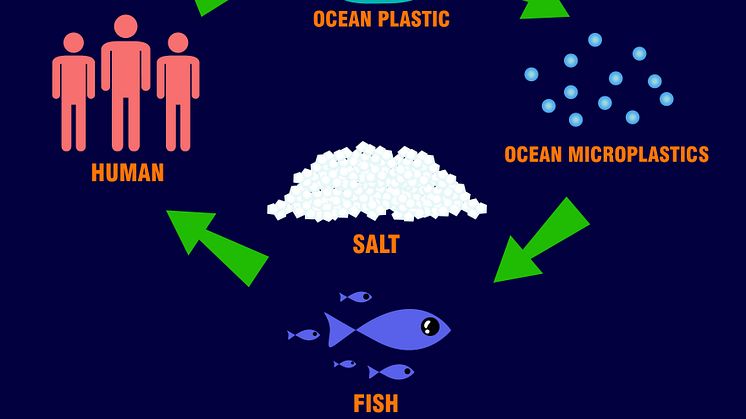
Press release -
Study shows microplastics may significantly increase the toxicity of organic pollution
Stockholm, Sweden, February 21, 2022 – New research has delivered yet more evidence of the threats posed to human health by the invisible world of chemical pollution being sparked by microplastics, reports Bluewater, a world leader in advanced drinking water technologies and solutions for homes, businesses, and public dispensing. It seems some chemicals sticking to microplastics become more toxic as a result of the interaction.
Research carried out at Israel’s Tel Aviv University by Dr. Ines Zucker of the School of Mechanical Engineering and Andrey Ethan Rubin at the Porter School of the Environment and Earth looked at how microplastic in the sea interacted with an antibiotic and antifungal agent called triclosan, which was used in hygienic products until banned in 2016 on health grounds.
The study showed that environmental pollutants were adsorbed – adhered – to the surface of the plastic but also in a reaction known as ‘joint toxicity’ significantly became more poisonous.
But the bad news got worse. The study, published in the journal Chemosphere, also analyzed what happened to the triclosan and microplastic mix in a biological rather than marine environment. And they found it de-adsorbed, which means the toxic mix disappeared into the body.
“Ubiquitous microplastics are in the air we breathe, the food we eat, and the water we drink, and now we learn they may actually be making organic pollution much worse,” said Bluewater spokesperson Dave Noble, head of PR and Communication.
A review of research into the impact of microplastic exposure carried out at Hull York Medical School, UK, and published in the Journal of Hazardous Materials, indicated specific types of harm, such as cell death, allergic response, and damage to cell walls, were potentially caused by the levels of microplastics ingested by people through contaminated drinking water and seafood.
In December 2021, researchers at the San Giovanni Calibita Fatebenefratelli hospital in Rome found microplastics in the placentas of unborn babies.
Bluewater founder and CEO Bengt Rittri said: “The rocketing evidence of microplastic pollution underlines the urgent need for more detailed research into the environmental and health threats posed by these plastics."
For more information, please contact Dave Noble at david.noble@bluewatergroup.com or at +44 7785 302694.
Topics
Categories
Bluewater is a world leading, Swedish water purification company with regional sales offices in the USA, China, South Africa and Europe. Bluewater innovates, manufactures and comercializes compact water purifiers for residential, business and public use that harness the company’s patented reverse osmosis technology to remove virtually all pollutants from tap water, including lead, bacteria, pesticides, medical residues, chlorine, microplastics, and lime-scale. www.bluewatergroup.com
Follow us for water-related news on Facebook, Twitter and Wechat (Search ID: Bluewater). Journalists and bloggers can follow our press releases and blogs at http://www.mynewsdesk.com/us/bluewater. And everyone is welcome to enjoy our themed Bluewater music playlist on spotify at BluewaterPure Radio.


